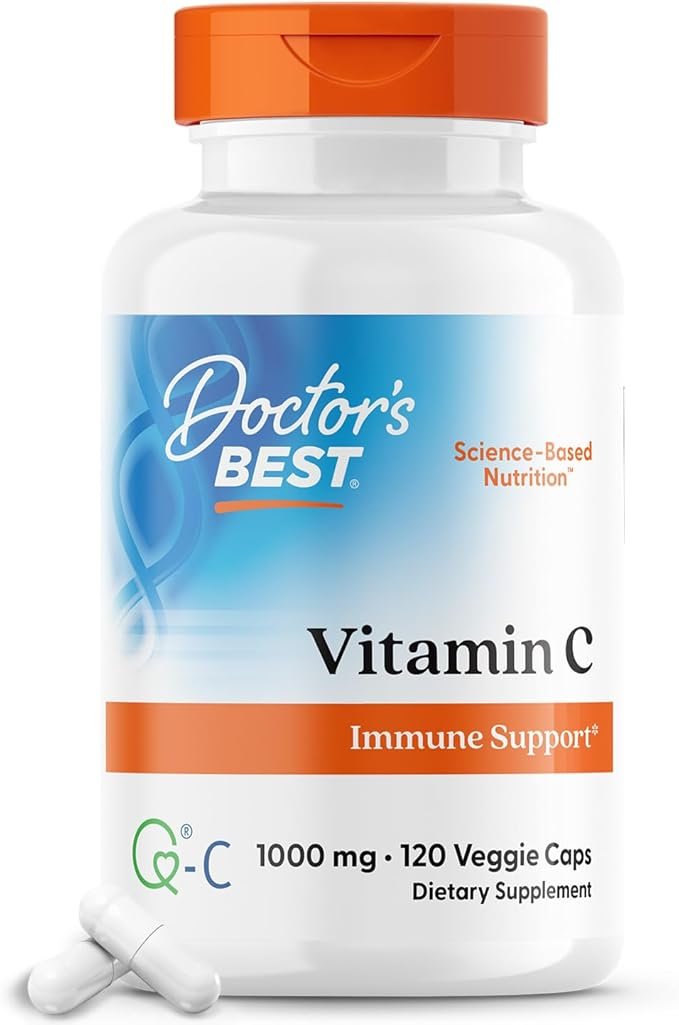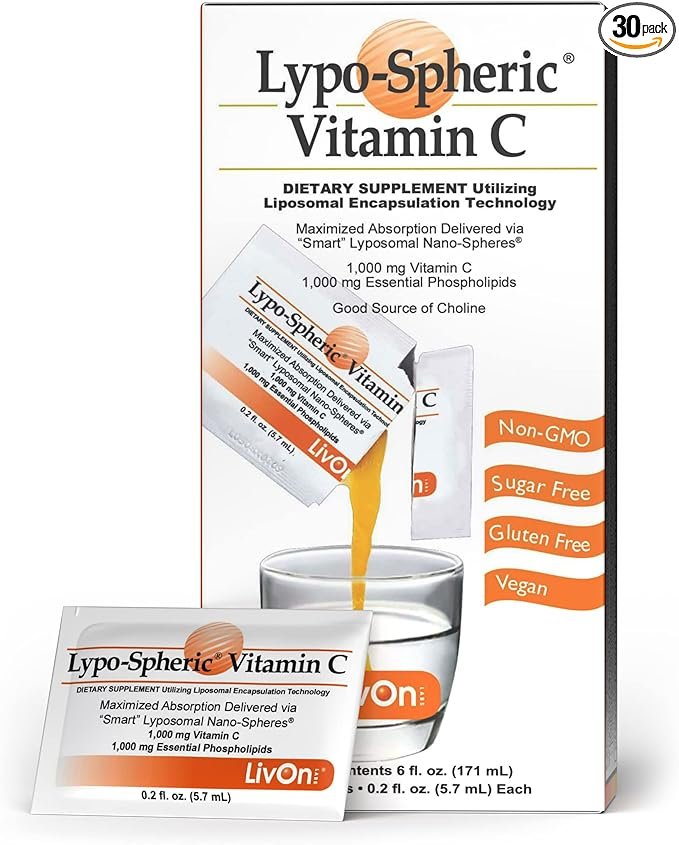Liposomal vitamin C supplements in capsule form are defined as a form of vitamin C (ascorbic acid) encapsulated within these liposomal vesicles. This encapsulation process is carried out using advanced biotechnological techniques that envelop the vitamin in a protective layer of phospholipids. The phospholipids used in the manufacture of liposomal vitamin C are typically derived from sources such as sunflower or soy lecithin. The main purpose of this encapsulation is to protect vitamin C from gastric acidity and facilitate its delivery to the deeper layers of the skin or directly to the body’s cells. This delivery method has proven effective in significantly increasing the bioavailability and, therefore, the efficacy of vitamin C. The consistency with which multiple sources highlight improved absorption and bioavailability underscores the main advantage of liposomal vitamin C. This distinctive feature suggests more efficient utilization of the vitamin by the body, which could translate into greater health benefits.

Review of why we chose this product
Los usuarios destacan que esta vitamina C de Doctor’s Best ofrece una calidad superior y resultados efectivos, incluso tras años de uso continuo. Muchos afirman notar mejoras significativas en su salud, como la reducción de resfriados, inflamaciones y molestias en los ganglios. Se valora especialmente que el producto sea fabricado en Escocia, evitando ingredientes de dudosa procedencia. La presentación en cápsulas vegetales es apreciada por ser fácil de tragar y no tener sabores desagradables. Varios compradores mencionan que han probado otras marcas sin obtener los mismos beneficios, lo que refuerza su fidelidad a esta. También se menciona su buena relación calidad-precio y la presentación limpia y sin residuos. A pesar de algunas quejas por el aumento de precio, muchos consumidores prefieren pagar más antes que cambiar a una alternativa menos efectiva. Recomendada por su eficacia, pureza y confiabilidad.
Scientific evidence supports the superior bioavailability of liposomal vitamin C. A 2016 study showed that liposomal-encapsulated vitamin C significantly increased blood levels of vitamin C compared to a non-liposomal supplement administered at the same dose. Another study found that oral administration of liposomal vitamin C resulted in significantly improved absorption of ascorbic acid into the bloodstream, with a 30% increase in the area under the curve (AUC) and a longer duration of elevated blood levels of vitamin C. A study published in the Journal of Liposome Research concluded that orally administered liposomal vitamin C has a 1.77 times greater bioavailability than non-liposomal vitamin C. An independent clinical trial found that Zooki brand liposomal vitamin C increased blood levels up to 3.91 times over a 48-hour period compared to conventional vitamin C. BodyBio claims its liposomal technology offers 3-6 times greater absorption than a traditional liquid liposomal formula, although the provided excerpt does not cite a specific study to support this claim. A study conducted by PlantaCorp suggests that its liquid liposomal vitamin C formulation exhibits greater absorption compared to other products tested, including powdered liposomal and non-liposomal formulations.
Very good alternative to capsules, if you don’t like them.

reviews of this product: This liposomal vitamin C supplement stands out for its extraordinary effectiveness compared to traditional forms. Liposomal encapsulation allows vitamin C to pass through the digestive system without degradation, achieving up to 200% better absorption than conventional tablets.
Users report notable benefits: Rapid immune system boost (some notice improvement in just 3 days)
Significant energy boost without adverse side effects,Cholesterol reduction (up to 10 points in some cases),Improvement in specific conditions such as dry eyes,Effectiveness against severe viral infections (including shingles)
Benefits for skin and collagen production.
Product Features: 1,000mg dose per individual packet
No GMOs, sugars, starches, dyes, gluten, or animal products
Suitable for vegetarians and vegans
Convenient gel format for on-the-go consumption
Recommended Dosage of Liposomal Vitamin C
The recommended daily intake (RDI) of vitamin C for adults varies by age, sex, and physiological status, but is generally between 75 and 90 mg. Smokers require a higher daily intake. Due to the greater bioavailability of liposomal vitamin C, estimated to be 5 to 10 times higher than that of traditional vitamin C, optimal results can be achieved with a lower dose. Some sources suggest that a dose of 350 mg per day of liposomal vitamin C may be sufficient, while other recommendations point to 1,000 mg (1 gram) per day. While the general RDI for vitamin C is well established, the optimal dose for the liposomal form is still evolving and may depend on individual needs and the specific product. The greater bioavailability suggests that lower doses may be effective, but more research is needed to establish definitive guidelines.
Different brands and formulations of liposomal vitamin C may have varying dosage recommendations. Some products are available in doses of 500 mg per capsule, with a recommendation to take one or two capsules daily, while others offer 1000 mg per dose (capsule or sachet). It is essential to follow the instructions provided by the manufacturer and/or the recommendations of a healthcare professional. Due to the lack of standardized dosage guidelines for liposomal vitamin C, consumers should rely on specific recommendations provided by the product manufacturer or their physician.
Side effects and precautions
Vitamin C has low toxicity; its undesirable effects are primarily digestive. At high doses (usually above the UL), diarrhea, nausea, and abdominal cramps may occur due to the osmotic effect of excess unabsorbed vitamin C.
The liposomal form, being less acidic and better absorbed, is usually well tolerated, but it does not eliminate these potential effects when consumed in large quantities. High intakes also increase urinary excretion of oxalate and uric acid, which theoretically increases the risk of kidney stone formation in predisposed individuals.
Therefore, it is prudent not to greatly exceed the UL of 2 g/day without supervision. Furthermore, vitamin C enhances the absorption of non-heme iron; in individuals with hemochromatosis (excessive iron accumulation), chronic consumption of very high doses can aggravate iron overload and damage tissue.
